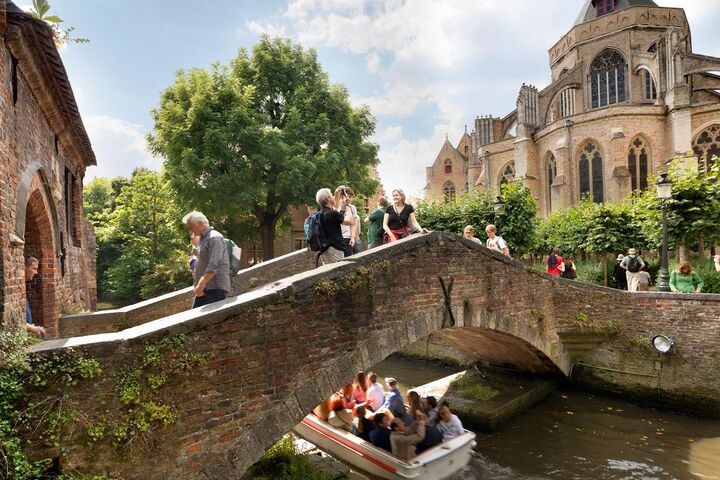
Belgian Beer heritage
In the Middle Ages, abbeys became knowledge centres for agriculture, livestock and certain crafts, including brewing beer. The monks were allowed to drink limited amounts of their regional beverage (which was beer in what is Belgium today), because the quality of the drinking water was unsanitary. Thanks to the monks, beer brewing evolved from a domestic activity into a true, artisanal craft.
Before the arrival of hops in Flanders in the 12th century, beers were flavoured with a herbal mixture called ‘gruit’. From then onwards, the hops replaced the ‘gruit’ to a large extent. Still, the tradition to brew with spices and herbs survived in several regions and beer styles, up to today.
During the Industrial Revolution, scientists gained a better insight into the brewing process and the mysteries of yeast cultures. The breakthrough of the Czech pilsner (1839) marked a new chapter in beer history. This beer was an instant worldwide success. Consumers turned their backs to other beer styles, which were in these days often sourish (slightly infected) and cloudy. Around the globe, this success put enormous pressure on the existing beer styles. Fortunately, local and traditional beer styles survived to an exceptional extent in Belgium.
While Belgium still had about 3.200 breweries in 1900, the first half of the 20th century was a difficult period. The World Wars and the economic crisis of the 1930s hit the Belgian breweries hard. In the following decades, even more breweries closed as a result of the tough competition and high costs for investing in new equipment. In the late 1960s, the turn tided. Belgian specialty beers were rediscovered and finally got the attention they deserved. The British beer guru Michael Jackson (1942-2007) played an important role in the global recognition of the Belgian beer heritage. Ever since, the interest in and export of Belgian beer has been on the rise.
Today, Belgium’s beer industry is enjoying a new revival. Traditional production methods are being complemented and strengthened by the latest technological know-how and scientific developments. The beer traditions live on in young, passionate brewers, trendy microbreweries and a new generation of beer drinkers who are keen on homegrown beer.



